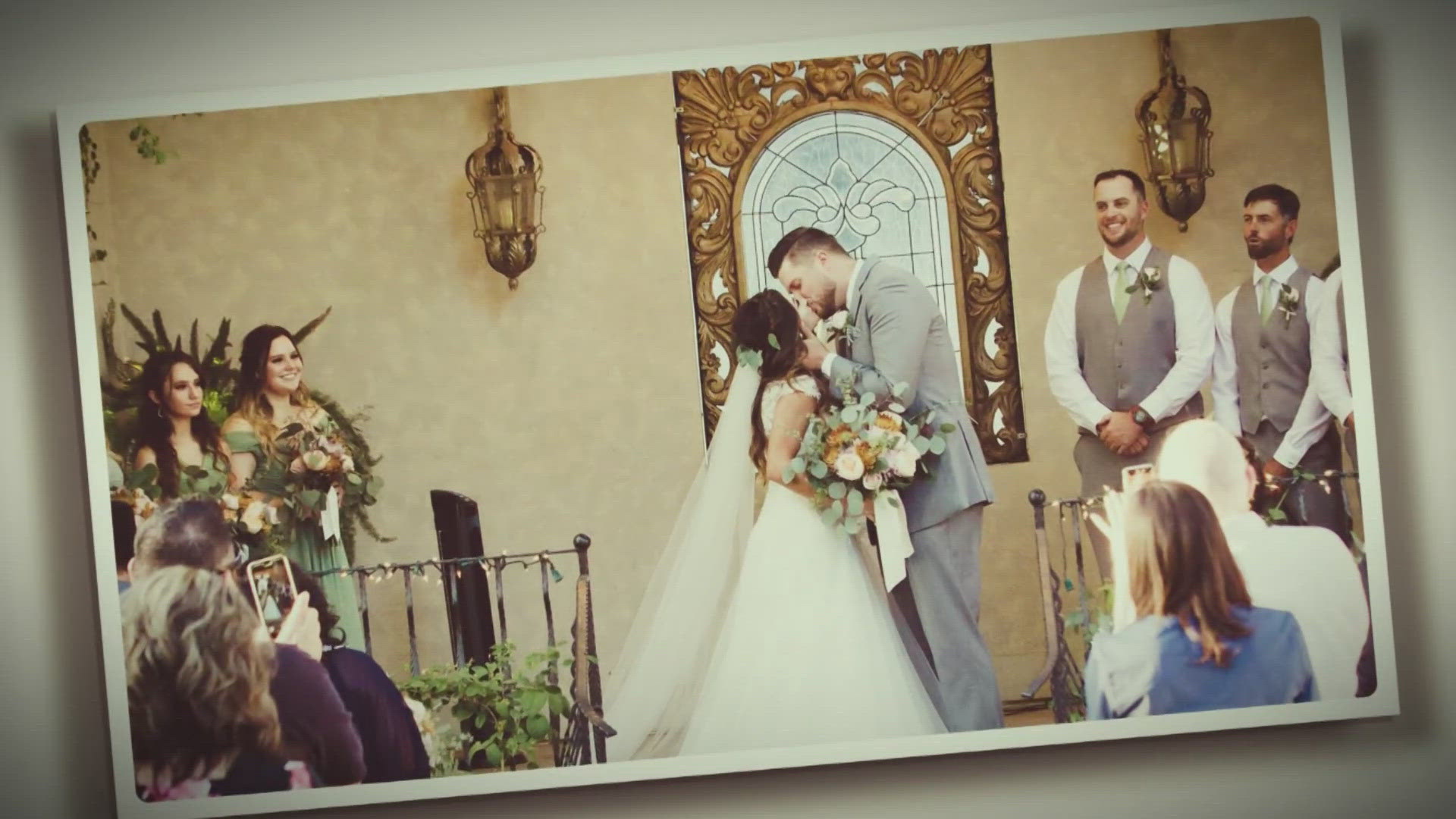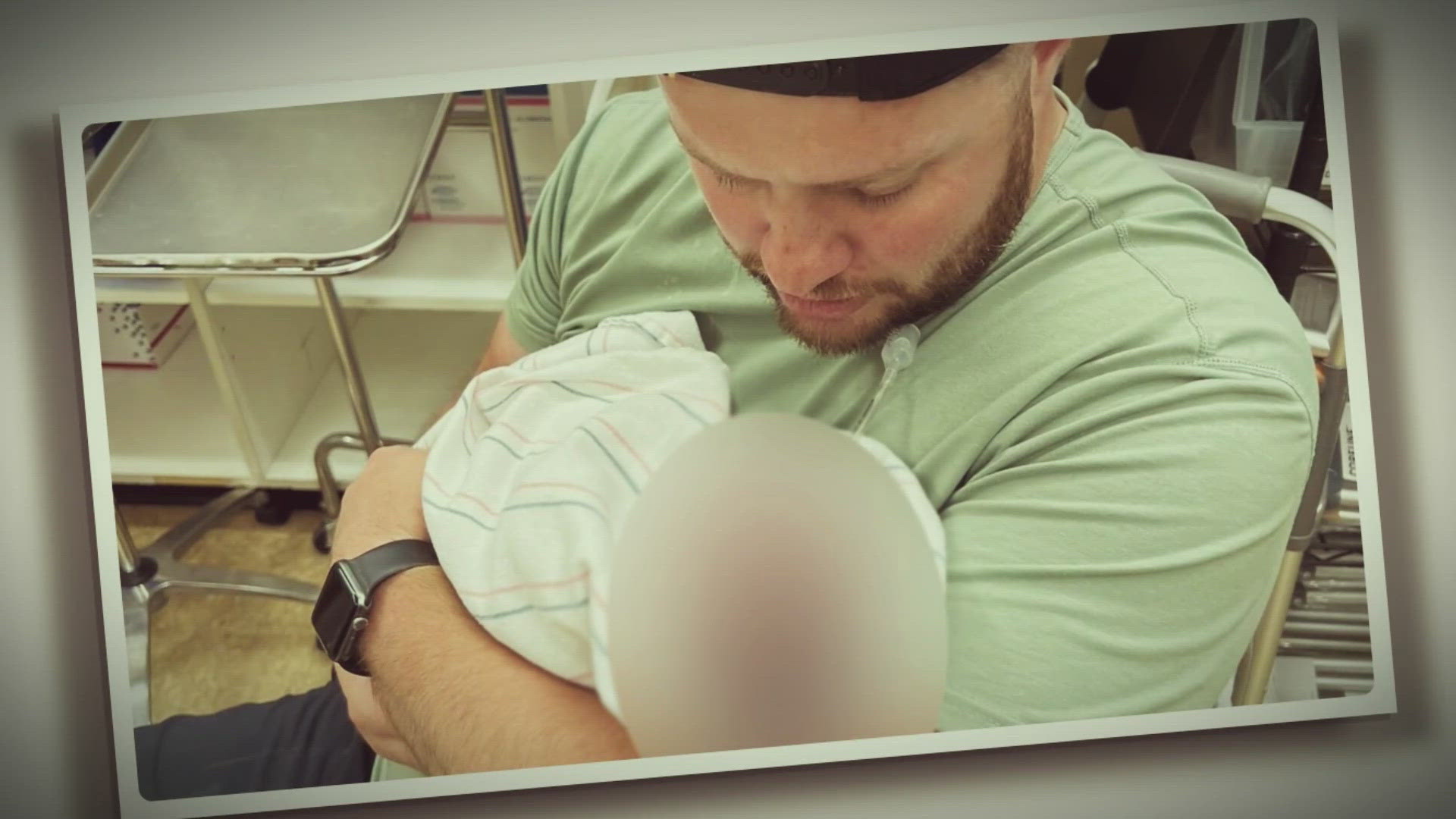SAFFORD, Ariz. — There was something wrong, very wrong. Jordan Terry’s lips were turning blue, her face was turning white. Her eyes were losing focus on her husband’s face.
This was not like the previous two births Jordan had done in the hospital.
This was with a midwife and it was something altogether different.
There are things you know in the moment – your wife is in significant distress – and there are things you don’t: The midwife you hired had complaints made to the state about her but was still practicing.
Parker was looking at his wife’s lips turning blue, the face turning white. And he said to the midwife “There’s no color.”
The midwife answered back. She’s doing OK.
Parker called it out again.
Parker recalled the midwife answered back: It’s probably low blood pressure or low blood sugar. Give her a spoonful of honey and she’ll be fine.
She needed more than that.
She needed the sort of help only an ambulance and a hospital could provide. Jordan, an ER nurse who was cross-training to become an obstetrics nurse, knew she needed help.
The last words she said to her husband: "Call them."
The midwife answered back: Call the ambulance?
And Jordan said “Yeah.”
===
There are people who swear by midwives, finding them more empathetic, compassionate and attentive to a birthing patients’ wishes, especially in a home birth. There are people who feel the exact opposite.
Jordan Terry was in the first group. She wanted to become a midwife in addition to being a nurse. She wanted to go through the homebirth with a midwife to know what her eventual clients would go through.
Being a registered nurse, Jordan would have been regulated by the Arizona State Board of Nursing. Non-RN midwives in Arizona are regulated by the Arizona Department of Health Services.
Terry’s midwife, Sarah Kankiewicz, was not a nurse.
And she had a history.
===
At the beginning of January, Sarah Kankiewicz made a social post, an end-of-the-year review.
She had helped deliver 31 babies in 2023.
She marked three of those babies’ names with an angel.
12News found that Kankiewicz had multiple complaints made against her.
“There’s no regulation,” Parker Terry said. “The state is basically not doing anything, you know .. And we’re just kind of left here in limbo.”
Jordan needed a c-section and the baby — his name was Mack — died on December 17, 2023. His name was marked with an angel on Kankiewicz's end-of-the-year-review social media post.
The reality is less pleasant than the social media post. There was a medical airlift to Tucson from Safford, where Jordan had been giving birth and was admitted to the small town’s hospital.
There was a uterine rupture. There was internal bleeding.
And there was Jordan’s death on Dec. 18, 2023 and Parker’s mourning, which is ongoing.
RELATED: As rural hospitals close their maternity wards, what happens to the pregnant women left behind?
“You're supposed to grow your family,” he said. “And then a matter of, what, 12 hours .. all of a sudden, you lose a kid and about 12 hours from then, you lose a wife.”
And then there was that social media post.
===
Parker Terry saw Kankiewicz’s post about the babies. He knew his and Jordan's Mack was one of the names with angel beside it.
Earlier this month, he posted his and Jordan’s story on social media – and he found he wasn’t alone.
Heather Flowers was from Mesa and had hired Kankiewicz to deliver her baby in 2020.
She struggled through delivery only to find her baby was 11 pounds and literally was tearing her apart during the delivery.
Flowers alerted state regulators in 2020. They found Kankiewicz:
- didn’t check Flowers’ vital signs every two to four hours
- downplayed the laceration Flowers’ large baby had caused during birth
- and didn’t arrange for immediate transport to the hospital
“My biggest fear was that this was going to happen to someone else,” Flowers told 12News.
It did. It happened to Parker and Jordan Terry.
===
An state health department investigation found Kankiewicz had failed to protect her patients. She shouldn’t have been doing a homebirth. In fact, the Arizona health code regulating midwives said she was prohibited from it, because Jordan had previously had a c-section and a blood transfusion, raising the risk of a complicated pregnancy.
This would seem to be a strong statement, given that there were at least three complaints against her, including her treatment of the Terry family.
The State of Arizona issued a notice of intent to revoke Kankiewicz’s license in March. She’s been allowed to continue practicing in the meantime.
12News called Sarah Kankiewicz and asked to speak with her.
She hung up the phone and did not return further messages.
We asked the Arizona Department of Health Services for an interview. They declined. But they did provide a copy of the intent to revoke.
There will be a settlement conference May 22. There may be a permanent license revocation. There will be a settlement for everyone except for Parker Terry.
“It should have been revoked a long time ago,” he said. “If it did my wife would’ve still been alive.”
A GoFundMe has been established for the family.


